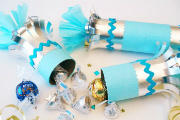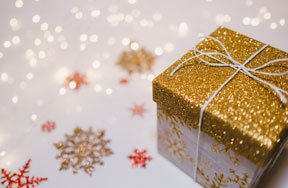We’ve all heard of New Year’s Eve, but not everyone has heard of Omisoka, a similar holiday celebrated in Japan. Omisoka is a very important holiday for Japanese people, and is celebrated at the same time as New Year’s in North America. Find out more about Omisoka!

Japanese New Year
Just like New Year’s Eve, Omisoka is celebrated as the beginning of a new year with new possibilities, but their celebrations are a little different. Japanese New Year takes place on the last day of the year (December 31st). In preparation for a new year and a clean slate people purify their homes and remove last year’s clutter by cleaning from top to bottom. This is called “osoji”. They have a giant feast with friends and family with some traditional Japanese foods. Often people go out to celebrate or stay home and watch a nation-wide New Year’s talent competition until it’s time to count down to midnight. Omisoka isn’t just about having a party, it is also considered a spiritual event for many Japanese people, and at midnight they visit Shinto shrines. Temples ring a large cast iron bell at midnight to signify the 108 earthly wants that created human suffering.
 At midnight the temple bell tolls to ring in the new year, but also for spiritual reasons
At midnight the temple bell tolls to ring in the new year, but also for spiritual reasons
Traditions
- People clean their houses and eat a large meal, and at 11 p.m. gather around to have one last meal of toshikoshi-soba (noodles). This is a tradition that comes from the belief that eating long noodles will give you a long life and help you cross from one year to the next!
 An hour before midnight people eat long noodles to symbolise a long life and crossing from one year to the next
An hour before midnight people eat long noodles to symbolise a long life and crossing from one year to the next
- Another reason much food is made on the last day of the year is that it is considered unlucky to cook in your kitchen for the first three days of the New Year, and most businesses are closed.
- At midnight temples not only toll their bell to signify human desires that cause suffering, but they also hand out a traditional sweet drink called Amazake. The toll of the large bell is called joya-no-kane.
- On December 31st, Japan has a national broadcast called the Red vs. White Singing contest, where contestants compete against each other up until a half hour before midnight (a bit like a New Year’s American Idol).
 Some people go to parties at midnight, but others go to shrines and temples and drink amazake.
Some people go to parties at midnight, but others go to shrines and temples and drink amazake.
Related Stories

































